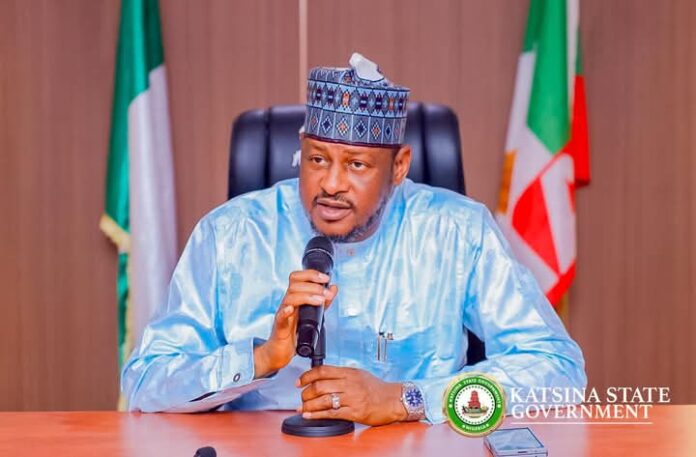Katsina State Governor, Malam Dikko Umaru Radda, has reiterated his strong support for local government autonomy, while emphasizing the critical role of accountability and oversight in managing public resources.
Speaking during a live appearance on Sunrise Daily, Channels Television’s flagship morning show yesterday, Governor Radda also highlighted Katsina State’s strides in improving the standard of living through strategic interventions in healthcare, education, and agriculture
When asked about the ongoing debate on local government autonomy and whether governors are truly committed to decentralizing power, Governor Radda said he could not speak for other states but made it clear that Katsina’s experience supports full autonomy—if checks and balances are in place.
“I was once a local government chairman in this state for six years,” the Governor recalled. “I operated under autonomy and that period helped shape my political journey. I’m in full support of local government autonomy, but we must ensure mechanisms are in place to monitor how funds are used. Accountability is key.”
Governor Radda explained that while the law on full autonomy might not yet be implemented nationwide, Katsina State has already adopted a practical model.
“Every month, we sit down with our local government chairmen. We give them their funds, they present their projects, and we monitor implementation. That’s transparency. That’s partnership. Development can only happen when federal, state, and local governments complement one another.”
He added that his only caution lies in securing essential services under any autonomous structure—particularly the salaries and welfare of teachers, healthcare workers, and pensioners.
“We must ensure these obligations are not neglected under autonomy. With proper oversight from the Ministry of Local Government and Local Government Auditors, we can prevent misuse and guarantee better service delivery.”
On the issue of hardship across Nigeria and whether the policies of his government have made any measurable difference, Governor Radda highlighted that Katsina has taken a data-driven approach to governance.
“We established a Bureau of Statistics to help us monitor poverty levels, the number of out-of-school children, and overall wellbeing. From the data, we know our interventions are working.”
He cited the recent National Bureau of Statistics (NBS) report, which ranked Katsina number one in ease of living—attributed to government efforts to keep the cost of food and water low.
“We have intervened at several levels—especially in agriculture. At one point, we sold bags of rice at ₦20,000 to support underprivileged families. Even now, we have food reserves that we’ll release if the need arises,” the Governor said.
He also noted that policies aimed at women and youth empowerment, combined with education and healthcare investments, have begun yielding results.
“More children have returned to school because of improved security and access to new schools. Our schools are now open and fully operational,” he said.
Governor Radda also spoke extensively on the healthcare reforms in the state:
“We now have over 200 functional primary healthcare centers operating 24/7 across our 361 wards. We’re equipping them with vehicles to support emergency transfers. We’ve upgraded more than seven centers to general hospitals and are building one of the largest public imaging centers in Nigeria. We also established one of the biggest public dialysis centers in the country—all right here in Katsina.”
While acknowledging that it might take time for the broader public to witness these changes firsthand, Governor Radda was confident that real progress is being made.
“It’s happening. The numbers don’t lie. The stories of our people confirm it. The work continues.”
Press Released Signed By Ibrahim Kaula Mohammed Chief Press Secretary to the Governor




